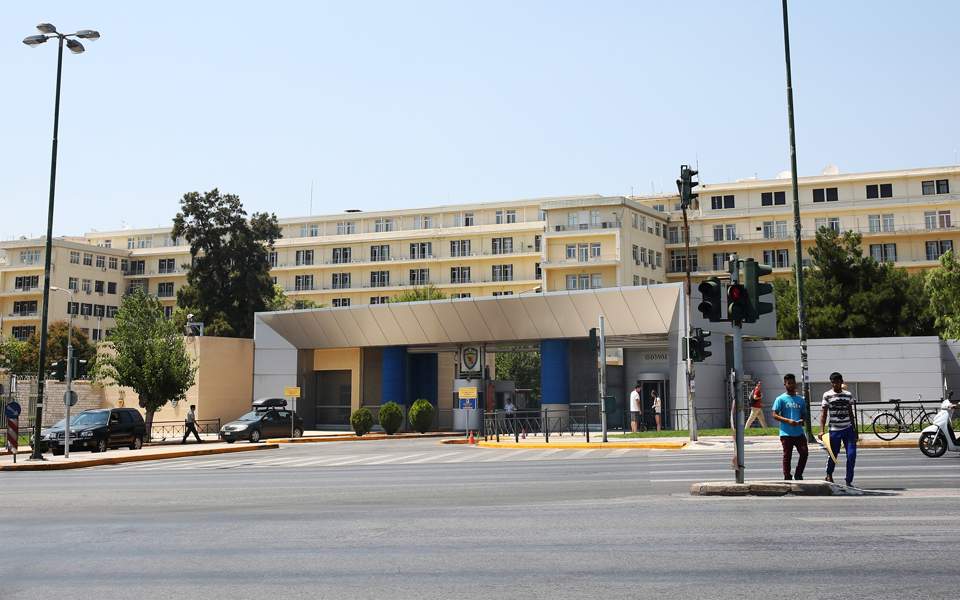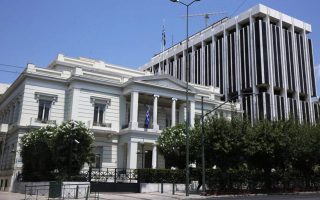The challenges to Greek security and the role of the National Security Council

A country which lies in a difficult neighborhood, with a rather poor tradition in crisis management and faced with a demographic crisis, tough economic obligations, chronic failures of the state apparatus, a dysfunctional educational system and a problematic mind-set in multiple areas, has few chances of achieving prosperity or even of surviving unless it introduces the necessary reforms and adjustments to meet the demands of the time.
These include preparing a strategic plan and a roadmap to achieve set goals, as well as building an effective crisis management mechanism. The complexity of contemporary national security challenges, the interaction between the different aspects of the international system and the need for effective participation in the shaping of the security architecture in our region with an active presence in the European Union, NATO and other formal and informal forums significantly complicate and ultimately undermine the work of national agencies.
In addition, Greece is surrounded by an arc of instability in a difficult area that is littered with bilateral disputes and open conflicts and where big power competition is characterized by a high degree of volatility and instability. Greece’s foreign policy and security apparatus has to effectively deal with complex challenges at a time of limited resources and long-standing institutional failings.
The agenda of future crises concerns a very wide range of potential problems that could stem from political, economic, social and even environmental instability in Greece’s neighborhood as well as domestically. The list of potential security challenges and threats is long and somewhat depressing (the threats are not listed in order of seriousness): conventional external threats, unchecked migration flows, climate change, domestic and international terrorism, organized crime, pandemics, trade wars, natural and man-made disasters, energy security, vulnerability of critical infrastructure, economic inequalities and social exclusions, violent radicalization of individuals and social groups who are affected by technological and broader geoeconomic developments, transport security, security and basic rights of Greeks and Orthodox Christians outside Greece.
Although all the aforementioned challenges and threats are a cause for differing degrees of concern, particular reference must be made to our eastern neighbor. Turkey’s ambitions to evolve into a regional power in Central Asia and the Middle East (and leader of the Sunni world) might not be of so much concern if Turkey’s foreign policy in the Eastern Mediterranean region (especially on issues which have an immediate impact on Greek interests, such as the delimitation of maritime borders) weren’t founded on a surrealist interpretation of international law, a zero-sum game logic and an acute aggressiveness which has turned the country into a factor of instability in a zone of vital significance for Greek security. As a result of the above, a large part of the activity of Greece’s national security mechanism is spent trying to balance out the Turkish threat.
Effective handling of potential challenges and threats to the country’s national security requires a) national consensus (it is very important to maintain channels of communication between the government and opposition on crucial issues) and b) effective cooperation between responsible ministries and their respective agencies: the ministries of foreign affairs, national defense, citizens’ protection, national economy, energy, internal affairs, education and so on.
The main objective behind the position of the national security adviser to the prime minister is paving the way for the creation of a National Security Council (NSC) whose key mission will be to coordinate the aforementioned ministries and agencies on issues of strategic planning and crisis management. By promoting the optimal use of the national power factors toolbox, and facilitating partnerships and synergies, the NSC aims to improve communication and cooperation of the agencies involved and to maximize benefits for the country’s national security. In this light, the NSC aspires to operate as a power multiplier.
In particular, regarding management crisis, the rapid speed of developments and the need for immediate reactions merit the existence of an efficient and flexible centralized mechanism accessible to all parties involved – operators and politicians. The main mission of these parties is to identify a crisis in ample time, to process various action/reaction scenarios and to effectively coordinate the services involved.
A key activity of the NSC will be the preparation, in cooperation with other stakeholders, of a National Security Strategy, whose central components will be a National Defense Policy (Ministry of Defense), a Homeland Security Strategy (Citizens’ Protection Ministry) and general foreign policy guidelines (Ministry of Foreign Affairs).
In this context, priorities will be the designation of vital national interests, the evaluation and prioritization of threats, the country’s vulnerability assessment and the search for convincing responses to the various challenges, as well as ways to increase resilience. The overarching aim will be to make the most of national assets of power. Moreover, in times of widespread and rapid change in the fields of technology, politics, economics and other areas, it will be extremely useful to periodically re-examine key issues, assumptions and policies so as to either verify their continued validity or to ascertain the need for change. The NSC aims to contribute to this ambitious process.
Key objectives include the constant briefing of political parties and, of course, Parliament and participating, as far as possible, in a public debate on crucial issues pertaining to the country’s national security. In addition, the NSC will be an outward-looking institution that will strive to enlarge the country’s regional, European and international footprint. The NSC should remain a small and flexible institution whose usefulness will hinge on its high-quality staffing, its state-of-the-art technological equipment and effective cooperation with stakeholders in the field of national security.
It is our hope that the NSC will be one of the key institutional tools for the protection of the country’s interests and for its security against diverse threats, so as to ensure that Greece remains a democratic country based on the rule of law, political, economic and social stability, which will also serve as a pillar of stability and security within a strong, integrated Europe.
Alexandros Diakopoulos is Greece’s national security adviser. Thanos Dokos is deputy national security adviser.





